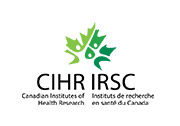‘Equity-Oriented Health Care’ aims to reduce the negative health effects of:
- multiple, intersecting forms of racism, discrimination and stigma
- structural inequities and structural violence
- the frequent mismatches between usual approaches to care and the
needs of people most impacted by health and social inequities
- Health equity is about social justice and providing the best possible health and healthcare for everyone, paying special attention to people at greater risk of poor health. Health equity pays attention to the social, political, and economic factors that influence access to care, and people’s experiences of care. To achieve equity means minimizing the differences in health outcomes between groups, and supporting people to achieve their health goals and lead healthy lives, through, among other things:
- freedom from racism, stigma and other forms of discrimination
- access to safe and secure housing
- food security
- quality healthcare, and positive health care experiences
- Health Equity is not the same as Health Equality. Equality means that everyone receives the same care or the same things. Like equity, equality promotes fairness and justice, however, it can only work if everyone starts from the same place and needs the same things. Health equity focuses on “levelling the playing field” and providing care in ways that are appropriate to what people need to achieve their health goals and enjoy full, healthy
lives. To remove injustices, we are challenged to make better decisions about who gets what, and how health and social services, and policies, are organized and delivered. - In Canada, the lack of affordable housing, rising poverty rates, increasing homelessness, systemic racism toward Indigenous, Black, and people of colour and new immigrants (among others), as well as stigma and discrimination toward people who are presumed to use substances or be ‘drug seeking’, are examples of systematic health and social inequities that can be addressed through equity-oriented health care.




